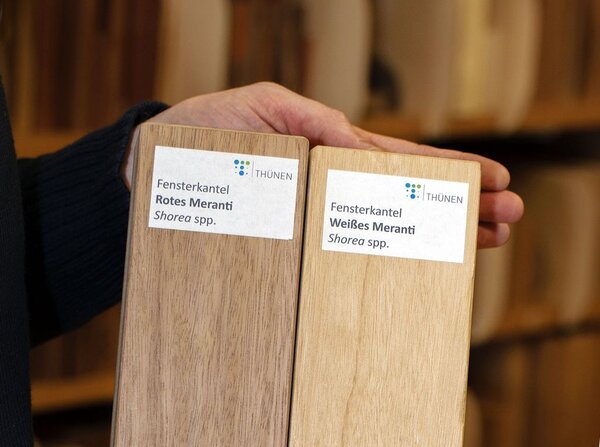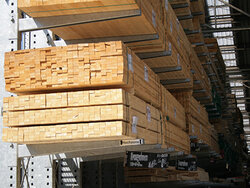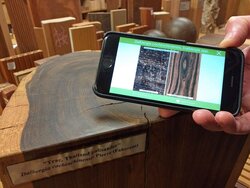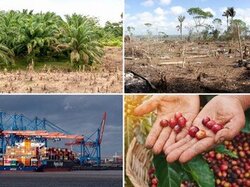Dossier
Control of internationally traded wood and wood products
Gerald Koch, Margret Köthke, Hilke Schröder
The marketing of wood and wood products from illegal sources has been prohibited in the EU since March 2013. With methods for proof of species and origin, it is possible to verify beyond doubt whether the woods are correctly declared and of legal origin.

The international trade of wood and wood products it globally changing and developing. This is associated with certain problems, above all
- the overexploitation of tropical commercial tree species,
- the increasing import of exchange woods, so-called "lesser known species",
- the problem of illegal logging, and
- the trade with CITES protected timber species.
Therefore, control measures and effective methods for the doubtless determination of individual woods and their origin are increasingly required. This is even more important since the entry into force of the European Timber Regulation (EUTR) has prohibited the placing on the market of illegally harvested timber or wood products since March 2013. The national implementation of the EUTR in Germany is carried out by the Timber Trade Security Act. Simultaneously with the entry into force of the EUTR, the Thünen Centre of Competence on the Origin of Timber was founded in 2013. The Centre bundles the expertise from three Thünen Institutes, the Institute of Wood Research, the Institute of Forestry and the Institute of Forest Genetics. It handles inquiries on wood species determination, genetic species and origin verification, and legality verification of origin and import documents.
The inquiries come primarily from the timber trade and from official control agencies. However, an increasing number of inquiries comes from nature conservation organizations and private individuals.
The investigations and methodological developments on the proof of species and origin of the woods, which are carried out by the Thünen Centre of Competence, are important to detect false declarations in the trade documents and certificates and to prevent or monitor the import of illegally harvested or protected wood species. The controls are also important for consumer protection, so that the renewable raw material wood can also be used in the future with a "good conscience".






![[Translate to English:] Logo des Bundesministerium für Ernährung und Landwirtschaft](/media/allgemein/logos/BMEL_Logo.svg)